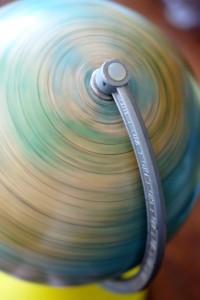
This is another installment of Cedar’s Digest, a series of poetic stories about the experiences my husband, Ren Ruslan Feldman, and I are having living for six months in Central Borneo. We are volunteer teachers in a small, innovative Indonesian school. The school is child-centered with a focus on hands-on learning and character development. Classes are taught in English and Indonesian.
Well-known proverbs from one language and culture as understood by 12-year-old Indonesian students (from Central Kalimantan) learning English as a second language.
English proverb beginning . . . . Indonesian ending
(cultural interpretation, based on 5 months of experience in Indonesian)
Don’t change horses . . . . don’t change friends.
(Loyalty to family and friends are very important here.)
No news is . . . . a bad sign.
(In a developing country like Indonesia, no news means that telecommunications have broken down again.)
If you lie down with dogs . . . . you’ll feel what dogs feel like.
(This shows the closeness to nature of the local kids.)
The pen is mightier than . . . . the pencil.
(Official documents, signed in pen with multiple signatures, are required for virtually everything.)
Where there’s smoke . . . . there’s pollution.
(Smoke pollution from burning yard waste and peat and forest fires is a major problem here in Central Kalimantan.)
Laugh and the whole world laughs with you, cry and . . . . the whole family cry with you.
(Family units are close and supportive and willing to sacrifice to care for each other.)
Never underestimate the power of . . . . respect.
(Respect is a primary virtue for people of all ages here.)
Don’t bite the hand that . . . . is dirty.
(Cleanliness is important for preventing disease . . . . typhoid is not uncommon here.)
Love all, trust . . . . God.
(Indonesia is a country of strong religious faith–Muslim, Christian, Buddhist, Confucian, and Hindu.)
Better late than . . . . early.
(When Indonesians are late (most of the time), they shrug their shoulders and say, “jam karet”–time is rubber.)
Strike while the . . . . thrower throw the ball.
(Sports–especially soccer–are a major form of exercise and social interchange. S’s on verbs, like stoplights, are optional.)
A bird in the hand . . . . sing for you.
(Birds here sing constantly from 4 am until dark, and some real screechers hold sway in the evening.)
When the blind lead the blind . . . . they will get accident.
(Given how people drive here, you wonder why there aren’t more accidents–or blind people.)
If at first you don’t succeed . . . . you should try better.
(Many of our students know the difference between working hard and working smart, a good sign for the future of the country.)
Don’t put off ’til tomorrow what . . . .you want to express.
(This is counter-cultural advice. Most people would rather say nothings than to risk upsetting social harmony, the ultimate Indonesian virtue.)
6/2012, Cedar Barstow and Ren Feldman
Well-known proverbs from one language and culture as understood by 12-year-old Indonesian students (from Central Kalimantan) learning English as a second language.
English proverb beginning . . . . Indonesian ending
(cultural interpretation, based on 5 months of experience in Indonesian)
Don’t change horses . . . . don’t change friends.
(Loyalty to family and friends are very important here.)
No news is . . . . a bad sign.
(In a developing country like Indonesia, no news means that telecommunications have broken down again.)
If you lie down with dogs . . . . you’ll feel what dogs feel like.
(This shows the closeness to nature of the local kids.)
The pen is mightier than . . . . the pencil.
(Official documents, signed in pen with multiple signatures, are required for virtually everything.)
Where there’s smoke . . . . there’s pollution.
(Smoke pollution from burning yard waste and peat and forest fires is a major problem here in Central Kalimantan.)
Laugh and the whole world laughs with you, cry and . . . . the whole family cry with you.
(Family units are close and supportive and willing to sacrifice to care for each other.)
Never underestimate the power of . . . . respect.
(Respect is a primary virtue for people of all ages here.)
Don’t bite the hand that . . . . is dirty.
(Cleanliness is important for preventing disease . . . . typhoid is not uncommon here.)
Love all, trust . . . . God.
(Indonesia is a country of strong religious faith–Muslim, Christian, Buddhist, Confucian, and Hindu.)
Better late than . . . . early.
(When Indonesians are late (most of the time), they shrug their shoulders and say, “jam karet”–time is rubber.)
Strike while the . . . . thrower throw the ball.
(Sports–especially soccer–are a major form of exercise and social interchange. S’s on verbs, like stoplights, are optional.)
A bird in the hand . . . . sing for you.
(Birds here sing constantly from 4 am until dark, and some real screechers hold sway in the evening.)
When the blind lead the blind . . . . they will get accident.
(Given how people drive here, you wonder why there aren’t more accidents–or blind people.)
If at first you don’t succeed . . . . you should try better.
(Many of our students know the difference between working hard and working smart, a good sign for the future of the country.)
Don’t put off ’til tomorrow what . . . .you want to express.
(This is counter-cultural advice. Most people would rather say nothings than to risk upsetting social harmony, the ultimate Indonesian virtue.)
6/2012, Cedar Barstow and Ren Feldman

 RSS Feed
RSS Feed